Table of Contents
Cannabidiol (CBD) is one of at least 120 phytocannabinoids found in the Cannabis Sativa L. plant. Constituting around 40% of the plant’s active compounds.[i]
Cannabidiol can be extracted from cannabis (marijuana), industrial hemp, or synthesized in the lab. Both hemp and marijuana are versions of the Cannabis Sativa L. plant.
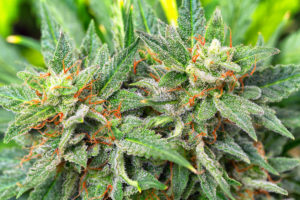 The percentage of CBD in hemp plants by dry weight is lower than the percentage of CBD in some hybrids of medical marijuana plants. But once the oil is extracted, the molecular structure of CBD is the same regardless of the source.
The percentage of CBD in hemp plants by dry weight is lower than the percentage of CBD in some hybrids of medical marijuana plants. But once the oil is extracted, the molecular structure of CBD is the same regardless of the source.
CBD does not have the same psychotomimetic (mind-altering) effects as the main plant compound THC (Δ9-tetrahydrocannabinol or Delta-9 THC). In fact, CBD is able to counter the mind-altering effects caused by THC.
CBD extracts primarily come from cannabis flowers and leaves of the marijuana plant. And from the flowers, leaves and stalks of hemp.
Hemp oil comes from the seeds of the hemp plant. But does not offer the same therapeutic benefits as CBD Oil.
CBD Oil and hemp oil are not the same and should not be confused. You will not experience the same nootropic benefits with hemp oil as you will with CBD Oil.
Note that depending on the hybrid, cannabis provides 5 – 35% of Delta-9 THC. While hemp is regulated to contain less than 0.3% Delta-9 THC.
In 1999, the U.S. Department of Health and Human Services obtained a patent for the neuroprotective effects of cannabinoids (US patent 6630507). To protect the brain from neurodegenerative diseases like Parkinson’s, Alzheimer’s and other forms of dementia.
CBD is anti-inflammatory, analgesic, anti-anxiety and provides anti-tumor properties, among others. CBD has been shown to have potential in the treatment of depression, neuroinflammation, epilepsy, oxidative stress, vomiting and nausea, anxiety and schizophrenia.[ii]
CBD Oil helps:
- Mood: CBD has been shown in the lab and through practical user experience to provide anti-anxiety and antidepressant effects. Reducing anxiety in those with social anxiety disorder. And as an antidepressant by enhancing serotonin and glutamate signaling via 5-HT1A
- Psychosis & seizures: CBD has gained widespread attention for treating seizure disorders like epilepsy. CBD lowers excitation in brain cells that contribute to seizures. CBD also enhances GABA which helps prevent seizures.[iii] And its anti-psychotic effects are related to its effect on increasing levels of anandamide.[iv]
- Neuroprotectant: CBD acts on CB2 receptors to produce anti-inflammatory responses in brain immune cells. Oxidation contributes to the damage seen in diseases like Alzheimer’s, and Parkinson’s. And inflammation has been associated with depression. CBD helps reduce this oxidative damage and inflammation.
Overview
Cannabidiol (CBD) is one of over 120 phytocannabinoids that have been isolated so far from Cannabis sativa L..[v] The other major phytocannabinoid is THC (Δ9-tetrahydrocannabinol or Delta-9 THC).
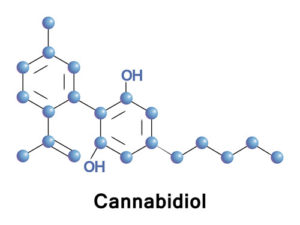 CBD was first isolated in pure form in 1940 simultaneously from American hemp[vi], and from Egyptian hashish[vii]. Since then, much more research has been conducted on THC compared to CBD. Likely because THC produces psychotomimetic effects (it can make you high), and CBD does not alter your mind.
CBD was first isolated in pure form in 1940 simultaneously from American hemp[vi], and from Egyptian hashish[vii]. Since then, much more research has been conducted on THC compared to CBD. Likely because THC produces psychotomimetic effects (it can make you high), and CBD does not alter your mind.
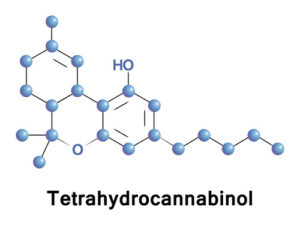 In fact, clinical studies and reports by ordinary neurohackers show that CBD can help prevent the psychotic-like effects induced by high doses of THC.
In fact, clinical studies and reports by ordinary neurohackers show that CBD can help prevent the psychotic-like effects induced by high doses of THC.
Cannabis is native to Central and South Asia. And has been used for millennia to produce hemp fiber for bowstrings, clothing, rope, livestock feed, medicine, religious ceremonies and recreation.
People were using cannabis to get stoned thousands of years ago. But it has only been in the last few years that scientists have begun to piece together how and what cannabis does in your brain.
The Endocannabinoid System
Endocannabinoid is short for endogenous cannabinoid. Endogenous means it’s native to our bodies.
The endocannabinoid system (ECS) is a group of receptors located throughout your brain and body. And consists of signaling molecules and their receptors.
The ECS is involved in various processes including appetite, mood, memory, pain-sensation, stress response, energy balance and metabolism and even female reproduction.[viii]
The two primary endocannabinoid receptors are CB1 and CB2. CB1 receptors are found primarily in the brain and central nervous system. It is the main molecular target of the endocannabinoid anandamide which is produced in your body, and the Delta-9 THC you get from cannabis.
The other main endocannabinoid is 2-AG (2-Arachidonoylglycerol) which is also produced in your body, and CBD which you get from cannabis. Both 2-AG and CBD are active at both the CB1 and CB2 receptors.
But CBD cannot bind directly with the CB1 receptor like THC. CB2 receptors are mainly expressed in immune cells in your body.
The overall function of the ECS is to maintain balance in the nervous system.
Neurotransmitters that work in reverse
Normally we think of neurotransmitters as moving in the direction of synaptic firing. In other words, it’s moving from the sending neuron to the receiving neuron to produce some action.
Endocannabinoids, on the other hand, are unique because they act more like retrograde neurotransmitters. They act in the opposite direction of synaptic flow.
Endocannabinoids in the synapse temporarily reduce the amount of neurotransmitter released from the sending neuron. Meaning the receiving neuron exerts control over the amount of neurotransmitter that it receives.
Now let’s circle back to cannabis. CBD and THC are collectively known as cannabinoids. And both interact with CB1 and CB2 receptors in your body and brain.
Delta-9 THC can dock directly to the CB1 receptor. But not CBD. Instead, CBD increases the activity of the native endocannabinoid system by increasing cannabinoid receptor density.[ix] And by inhibiting FAAH (fatty acid amide hydrolase) which increases levels of endocannabinoids like the bliss molecule anandamide.[x]
CBD is also an agonist of the 5-HT1a serotonin receptor.[xi] So the combination of increasing anandamide and serotonin activity likely provides the anti-anxiety and antidepressant effects of CBD. But we’ll dig into more detail on how CBD works in the brain in the next section.
What is Delta-8?
Delta-8 (Δ8-tetrahydrocannabinol) is naturally found in hemp. It has the same chemical formula as Delta-9 THC but one of its carbon bonds is located in a different position.
Delta-8 is not regulated like Delta-9 THC (marijuana or cannabis) because it is found naturally in hemp. Which was made legal in the 2018 Farm Bill.
This loophole in the law means even though Delta-8 produces similar effects to Delta-9 THC – it is not regulated. And is legal to buy in most US states.
The problem is Delta-8 is only found in very low quantities in hemp. And extracting it directly from hemp would not be profitable.
So, the Delta-8 found in vape stores and gas stations around the country are synthetically produced. Various solvents and chemicals are used during this process.
The result is chemical contaminants are often generated during this conversion process. And there is real concern about the safety of untested or impure Delta-8 products.
Delta-8 is NOT CBD Oil. You need to be careful when buying Delta-8 because of the potential to inhale harmful chemicals. Buying a product with no actual Delta-8. Or getting a high that is far stronger than what you expected or intended.
How does CBD Oil work in the brain?
CBD Oil boosts brain health and function in several ways. But two in particular stand out.
- CBD Oil is anti-anxiety. Human and animal studies show that CBD works as an anxiolytic.[xii] The first human study was published in 1982 on the interaction between CBD and THC.
The study worked with 8 healthy volunteers with a mean age of 27 years. The participants had not used cannabis in the previous 15 days. In this double-blind procedure, the volunteers received CBD, THC, THC + CBD, diazepam, or a placebo in different sequences and days.
The results showed that the increased anxiety following the administration of THC was significantly reduced with the simultaneous administration of CBD (THC + CBD).[xiii]
Several other studies with humans have since been conducted to determine how CBD produces this anti-anxiety effect. The consensus appears to be that CBD alters blood flow in specific areas of the brain.
One study had healthy volunteers using 400 mg CBD or a placebo in a double-blind trial. The researchers concluded that CBD significantly reduced anxiety.
The study found that CBD increased brain activity in the left Para-hippocampal gyrus and decreased activity in the left amygdala-hippocampus complex, including the fusiform gyrus.
This pattern of SPECT results is what is normally associated with an anxiolytic action.[xiv]
- CBD Oil is antidepressant. Reviews of many who regularly used CBD oil report its antidepressant effects. Studies have shown that CBD activates the 5-HT1a serotonin receptor. Which would raise levels of serotonin and provide an improvement in mood.
But there is also speculation among the scientific community that CBD also provides its antidepressant effects by increasing levels of endocannabinoids like anandamide. Likely by inhibiting their breakdown.[xv]
Other studies have shown that CBD facilitates other actions in the brain both in humans and animals that could contribute to improvement in mood. Including modifying the function of the several receptors such as CB1, CB2, GPR55, TRPV1 and 5-HT1A neuroreceptors.
CBD also inhibits FAAH which increases levels of the bliss molecule anandamide. And inhibits the adenosine transporter which would increase levels of adenosine. All possibly contributing to a better mood and decrease in depression.[xvi]
How things go bad
The primary culprit behind brain and neuron damage is oxidation and inflammation. And this damage can happen at any age. It’s influenced by our environment, toxins, food, stress and more.
↓ Serotonin and anandamide levels decline
↑ Anxiety increases
↓ Mood declines
↓ Brain cell plasticity declines
↓ Cognition, learning, memory and recall decline
↓ Free radicals damage brain cell mitochondria
↓ Leaky blood-brain barrier
CBD reduces oxidative damage by working as an antioxidant. It stimulates the production of BDNF which helps repair damaged neurons and assists in neurogenesis.[xvii]
CBD oil also helps repair damage to a leaky blood-brain barrier. And prevents the inflammation that damages it in the first place.[xviii]
CBD Oil benefits
The CBD movement really gained traction because of a little girl named Charlotte Figi. She had a severe form of epilepsy called Dravet Syndrome.
Charlotte first started having seizures when she was only 3 months old. By the time Charlotte reached 5, she was experiencing 300 grand mal seizures a week.
Her parents had tried every therapy they could think of by then. And nothing worked. Charlotte had lost the ability to walk, talk and eat. Her heart had stopped a number of times. Doctors had lost all hope of helping this child.
As a last resort, Matt and Paige Figi decided to try medical marijuana with their little girl. Paige located a Denver dispensary that had a small amount of marijuana called R4. It was low in THC but high in CBD.
The results were stunning. Charlotte started with a small dose of R4. And the seizures all but stopped. She now takes 3 – 4 mg of CBD oil per pound of her body weight with food.
R4 is now called “Charlotte’s Web”.[xix]
The last 5 years have shown a remarkable increase in publications on CBD mainly stimulated by the discovery of its anti-inflammatory, antioxidant and neuroprotective effects.
These studies have highlighted a wide range of possible therapeutic effects of CBD with conditions like Alzheimer’s and Parkinson’s disease, diabetes, epilepsy, stroke, rheumatoid arthritis and other inflammatory diseases, nausea and cancer.[xx]
Much of the evidence we have with CBD and its benefits to the brain come from everyday users of this nootropic. Some are backed by “hard science” and clinical trials. But it’s still early days in CBD research.
CBD and its effects on the body’s endocannabinoid system (ECS) provide positive effects on just about everything, including:
- appetite
- anxiety and depression
- bone development
- immune function
- memory
- pain perception
- reproduction
- sleep
How does CBD Oil feel?
Most neurohackers report when using CBD oil for the first time that years of pent-up stress and anxiety begin to fade. Many find CBD effective in relieving the symptoms of depression.
You should also experience an improved quality of sleep. Along with an overall improvement in mood.
Many report relief from pain caused by fibromyalgia, arthritis, lupus, migraines, and back surgery.
Several user reviews reported remission from various types of cancer. Several animal studies back up this anti-cancer benefit.
CBD seems to be effective in relieving the symptoms of bipolar manic depression. Others report the absence of seizures from epilepsy since starting CBD oil.
Overall, CBD oil offers a calming effect for most who’ve tried it or use it consistently. And many talk about their “first good night’s sleep in years”.
CBD Oil Clinical Research
The clinical research for CBD published in the last few years is impressive. But we can group many of these studies into four primary categories; neuroprotection, stress recovery, immune system balance and homeostatic regulation (energy balance).
CBD reduces social anxiety
Has a few hits off a joint or bong ever made you feel anxious? Turns out that the problem is likely due to too much THC and not enough CBD.
THC produces stimulating psychoactive effects, and CBD works opposite by quelling mind-altering reactions. THC can cause paranoia and CBD does not.
A double-blind, placebo controlled trial conducted in Brazil worked with 10 patients diagnosed with social anxiety disorder. One group received 400 mg of CBD while the control group took a placebo. The researchers concluded that CBD was effective in reducing anxiety.[xxi]
Another study in Brazil investigated the effect of CBD on the paranoia often associated with public speaking. In this trial, 24 patients diagnosed with social anxiety disorder participated.
Half the patients received 600 mg CBD and the other group a placebo. 1 ½ hours after using CBD or the placebo, patients participated in a simulated public speaking test.
The researchers found that pre-treatment with CBD significantly reduced anxiety, cognitive impairment and discomfort in their speech performance. The placebo group presented higher anxiety, cognitive impairment, and discomfort.[xxii]
CBD Oil relieves depression
Over the past 10 years, research has shown that depression may be caused by elevated inflammatory cytokines in the brain. This elevation in inflammation alters neurotransmitter systems which can lead to psychiatric disorder and depression.[xxiii]
Scientist are still trying to figure out exactly how CBD and other cannabinoids alleviate inflammation. Studies have shown that cannabinoid receptors play a crucial role in regulation of the immune system. And some cannabinoids have been shown to suppress inflammatory cytokines.[xxiv]
Cannabidiol (CBD) has been shown many times in animal studies to alleviate depression using various models. CBD activates the 5-HT1A (serotonin) receptor. Which could be behind CBD’s antidepressant effects.
In one study done in Brazil, male Swiss mice were given CBD, imipramine or a placebo. The mice were then put into a forced swimming test.
The study found that “CBD induces antidepressant-like effects comparable to those of imipramine. These effects of CBD were probably mediated by activation of 5-HT1A receptors”.[xxv]
CBD Oil may relieve the symptoms of epilepsy
Several clinical trials have concluded that CBD is effective in reducing epileptic seizures in children with Dravet Syndrome.
The authors of these studies note that the majority of these children have a mutation in a receptor channel that is expressed in inhibitory neurons associated with the GABA system in the brain.
And it turns out that direct modulation of GABAA receptors by CBD likely contributes to the therapeutic effects in those with severe epilepsy.
Researchers at the University of Sidney investigated the effects of CBD on human GABAA receptors. The team inserted electrodes into egg cells implanted with human GABAA receptors to measure changes in electrical current following GABA administration and exposure to either CBD or 2-AG.
The results showed that both CBD and 2-AG are able to modulate electrical currents via changes in GABAA receptor activity. Both were able to exert their effects on receptors that didn’t respond to benzodiazepines.
The study also found that CBD had a higher binding selectivity than that of 2-AG. Meaning CBD worked more like GABA drugs that are able to reduce the symptoms of anxiety without sedation.[xxvi]
CBD Oil Recommended Dosage
Recommended CBD Oil starting dosage is 4 – 45 mg per day.
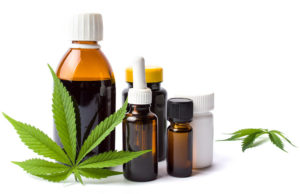 Now if you’ve done any research or have practical experience using CBD Oil, that recommended dosage is not very helpful. It’s merely a good starting point to see how your body reacts.
Now if you’ve done any research or have practical experience using CBD Oil, that recommended dosage is not very helpful. It’s merely a good starting point to see how your body reacts.
Dosage of CBD Oil depends on the condition you are treating, your body weight, and how your body reacts to Cannabidiol. Dosages differ from one person to the next.
The Mayo Clinic offers the following recommended dosages based on “scientific research, publications, traditional use, or expert opinion”.[xxvii]
- Epilepsy – 200 – 300 mg CBD per day
- Huntington’s disease – 10 mg CBD per kilogram of body weight
- Sleep disorders – 40 – 160 mg CBD per day
- Schizophrenia – 40 – 1280 mg CBD per day
- Glaucoma – 20 – 40 mg CBD per day
- Chronic pain – 2.5 – 20 mg CBD per day
These dosage recommendations are based on using pure CBD Oil extracted from Cannabis sativa including hemp but contains no THC.
Many in the Cannabis world maintain that a combination of CBD and THC in varying ratios will provide greater therapeutic value than using CBD or THC alone.
So it’s up to you to decide, based on availability and your own personal choice, whether to use pure CBD Oil or a CBD product that combines CBD with THC.
The science is clear however that CBD Oil provides amazing therapeutic benefits and can be used on its own.
CBD Oil Side Effects
Most neurohackers can use CBD Oil without experiencing any unpleasant side effects. And the few that do will get minor symptoms such as mild indigestion, diarrhea, or dry mouth.
Most human clinical studies include side effects reported by study participants.
For example, a study published in the Brazilian Journal of Medical and Biological Research noted that “chronic administration of CBD for 30 days to healthy volunteers, at daily doses ranging from 10 to 400 mg failed to induce any significant alteration in neurological, psychiatric or clinical exams.
Patients suffering from Huntington’s, daily doses of 700 mg of CBD for 6 weeks did not induce any toxicity. Therefore, confirming results from animal studies, the available clinical data suggest that CBD can be safely administered over a wide dose range.”[xxviii]
There is no lethal dose for CBD or THC. So while you can’t do permanent damage to your body, you will likely find that lower doses are often better and more effective than higher doses.
Unwanted side effects are usually caused by poor quality CBD Oil from unreliable brands. Quality matters! Hemp absorbs toxins like mercury and lead from the earth it’s grown in. So where your CBD Oil comes from can make a big difference.
Type of CBD Oil to Buy
CBD is available in capsules, concentrates, tinctures, topicals, sprays and vapes.
Charlotte’s Web are pioneers in the hemp CBD industry and offer a selection of CBD Oils, CBD capsules, CBD isolate, CBD Topicals, CBD Gummies, and even CBD Oil for dogs. I highly recommend the CBD Oils, edibles, drinks, topical lotions, and pet products designed and produced by Click for Charlotte’s Web CBD Oil. Use Discount Code for 30% off: NOOTROPICS30
Tinctures are the most common form of CBD on the market. And likely the most pure form of CBD. Dosages range from 100 – 1000 mg. So do your research on what strength to choose. Tinctures are great for using CBD sublingually.
Concentrates are similar to herbal extracts in that they can contain up to 10-times the concentration of CBD compared to a tincture. Similar to tinctures, concentrates of CBD work well sublingually.
CBD capsules are usually 10 – 25 mg of CBD Oil. Capsules are the easiest way to keep track of your daily dosage. Just add the capsules to your nootropic stack.
Topical CBD comes in lotions, lip balms, and salves and are used for chronic pain, inflammation, psoriasis, acne, skin cancer and anti-aging. Read the label to find out what type of technology the product employs to deliver CBD through the dermal layers of your skin.
CBD sprays are usually the weakest concentration compared to other forms of CBD ranging from 1 – 3 mg per spray. But they’re easy to carry around with you.
Vaping CBD seems to be the least effective form of CBD. If you decide to try vaping CBD, ensure you avoid vape juice or vape pens using propylene glycol as a carrier. Vaping propylene glycol produces nasty toxins like formaldehyde when heated.
Again, purity matters!
When searching for a CBD vendor, always ask for third party lab results. And pay particular attention to labeling to determine exactly what’s in the bottle and where the CBD was sourced from. User reviews can be especially helpful in choosing a high quality CBD supplier.
Nootropics Expert Recommendation
 CBD Oil start with 4 – 45 mg per day
CBD Oil start with 4 – 45 mg per day
I recommend using CBD Oil as a nootropic supplement.
Your body does not make CBD Oil on its own. So to get its benefits you must take it as a supplement.
CBD Oil is especially helpful for those dealing with anxiety and depression. CBD increases the bliss neurotransmitter anandamide, GABA and serotonin. And helps tame inflammation in the brain.
CBD Oil is also particularly useful for treating epilepsy.
Purity and dosing is everything when using CBD Oil. And remember that CBD Oil and hemp oil are NOT the same thing. While hemp oil offers several health benefits, it does not contain much, if any, of the phytocannabinoids CBD.
Dosing CBD varies from person to person and requires some trial and error. Always start low to see how your body reacts. Slowly increase the dose until you achieve the benefit you’re looking for.
User reviews and forums can be very helpful for choosing a vendor and brand of CBD.
I highly recommend the CBD Oils, edibles, drinks, topical lotions, and pet products designed and produced by Click for Charlotte’s Web CBD OilUse Discount code for 30% off: NOOTROPICS30

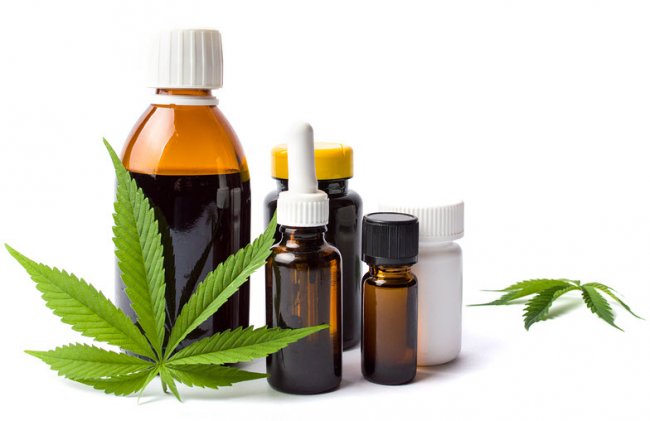


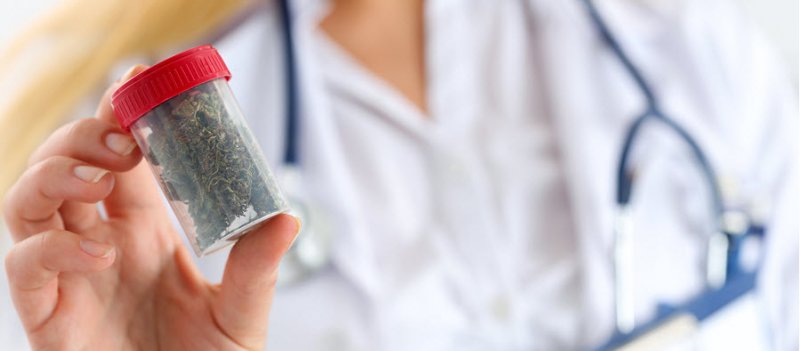





Join The Discussion - 122 comments
Steve P.
October 2, 2018
Hello David, I am looking at CBD oil to combat a rare disease Inclusion Body Myositis, IBM for short. It is a muscle wasting disease with no cure or treatment. It sends my CPK levels through the roof, when 100 is the norm mine are in the 2700-3200 range. This inflammation is wreaking havoc on my body. Do you know of anyone who may have use CBD oil for this purpose? And if so, have there been any positive results? I would like to try it to help with the inflammation and pain. Any suggestions on a dosage to start?
David Tomen
October 2, 2018
Steve, we concentrate on brain health and optimization around here. And have very little knowledge about any of the rest of what ails the human species. What makes you think that CBD Oil can have any impact on Inclusion Body Myositis? That may help a little in pointing you in the right direction.
Jordan
January 13, 2019
Inclusion Body Myositis is an inflammatory disease and is it right that CBD is anti-inflammatory? My father also suffers from IBM and I just came across CBD myself and was thinking to recommend it to him if anyone has heard anything relating to IBM and CBD!
David Tomen
January 14, 2019
Jordan, CBD Oil is considered anti-inflammatory. I suggest you also do a search of Nootropics Expert for other “anti-inflammatory” compounds. Pine Bark Extract comes to mind as it is a very potent anti-inflammatory.
Nahid Ameen
September 13, 2018
Hello – are there any research on CBD for benign tumor such as fibriod?
David Tomen
September 13, 2018
Nahid, there is some research into CBD Oil and cancer. I came across several user reviews when researching this review about success in treating cancer as well. This PubMed post covers some of that research: https://www.ncbi.nlm.nih.gov/pmc/articles/PMC5852356/
Musonda Lemba
July 6, 2018
What would you recommend as the best CBD/Hemp Oil for dealing with social anxiety?
David Tomen
July 6, 2018
Musonda, the CBD used in this study: https://www.ncbi.nlm.nih.gov/pmc/articles/PMC3079847/ used 600 mg of powdered CBD from STI-Pharm in Brentwood, UK in capsules. This study was done for anxiety.
The key is finding CBD Oil with very low or zero THC because THC may cause anxiety.
Charmian O'Brien
June 4, 2018
Thank you for this clear detailed explanation and scientific anslysis of CBD.
I have subscribed to the YouTube channel.
Matt
May 10, 2018
I’m interested in the amount’s of CBD Oil to treat leaky brain barrier? And, any other nootropics and/or treatments that can aid with this?
David Tomen
May 11, 2018
Matt, dosage of CBD Oil is dependent on the strength and formulation of the oil. I’m not aware of any specific dosage for CBD Oil and the blood-brain barrier.
The following supplements help support and in some cases repair the blood-brain barrier:
• ALCAR
• Alpha-Lipoic Acid
• Alpha GPC and CDP-Choline
• Vitamins B6, B12 and folate
• Berberine
• Nanoparticle-Encapsulated Curcumin
• Omega-3 fish oil
• Ginseng
• Magnesium sulfate
• Resveratrol
See each individual review for dosage instructions and possibly specific forms.
Matt
May 12, 2018
Do you know your timeline for completing your article on leaky blood brain barrier?
David Tomen
May 13, 2018
Matt, I’ve received a lot of questions recently about a leaky blood-brain barrier. So it’s moved up my very long list of articles to write. I’ll try to get one published within the next month.
Andrew
April 19, 2018
Nutiva-Organic-Hemp-Oil-Cold-Pressed
Manitoba-Harvest-Hemp-Oil
Is this a CBD Oil?
David Tomen
April 19, 2018
Andrew, hemp oil and CBD Oil are not the same thing. CBD Oil can be extracted from hemp. But CBD Oil is not hemp oil.
Mike Phillips
March 20, 2018
I’m interested in the amount’s of CBD Oil to treat stage two diabetes ? Also will it help with the pain in degenerative spine ?
David Tomen
March 20, 2018
Mike, I have no clinical data nor user experience in treating Type II diabetes with CBD Oil. If you are looking to treat neuropathic pain then please check the “Dosage Notes” in this review. It depends on the CBD Oil you use and how your body responds to it. Same goes with treating degenerative spine disease.
For diabetes, you may want to take a look at Berberine here > https://nootropicsexpert.com/berberine/. But be very careful it you are using insulin or other drugs to treat blood sugar. Because Berberine can drop your sugar too low.
James Gross
January 12, 2018
Hello David,
I am trying to find more information about cbd for glaucoma.
I visited the Mayo clinic site, but found no cbd for glaucoma
references.
Please direct me to the source of the Mayo Clinic dosages
for cbd and glaucoma mentioned in your excellent video.
Thanks in advance,
James
David Tomen
January 12, 2018
James, the Mayo Clinic reference comes from this page: https://www.mayoclinic.org/drugs-supplements-marijuana/art-20364974?pg=1. But for some reason I cannot locate exact dosages for glaucoma from my original source. However, the dosages I mentioned in that video and in this review correspond with the dosages found here: https://www.cannadist.net/CBD%20OIL/CBD%20OIL%20Usage.html